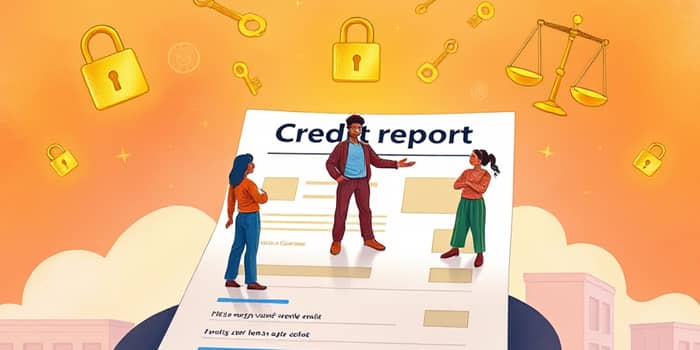
Our financial lives are built on trust, transparency, and fairness. Every day, we make decisions that shape our economic well-being: applying for credit cards, managing bank accounts, or settling loans. While these choices empower us, they also expose us to complex contracts and shifting regulations. Understanding your core consumer rights can transform confusion into confidence and protect you from unfair practices.
In 2025, regulators like the Consumer Financial Protection Bureau (CFPB) are stepping up enforcement, focusing on banning abusive terms and ensuring consumers have the tools to defend themselves. This article will guide you through your fundamental rights, practical steps to access and dispute information, privacy safeguards, complaint processes, and the evolving legal landscape. By the end, you’ll know how to stand up for your financial interests and secure your future.
At the heart of consumer protection lies the right to transparent agreements and freedom from unfair clauses. The CFPB’s proposed 2025 rule aims to ban take-it-or-leave-it form contracts that force you to waive essential legal protections, suppress honest feedback, or limit due process. These clauses often appear buried in complex financial product agreements, from credit cards to mortgages.
By eliminating these harmful provisions, regulators aim to restore fundamental legal safeguards and promote fair competition. Remember, any contract that demands you surrender your right to sue, speak freely, or engage in class actions may be illegal. Always read agreements carefully and question any terms that feel one-sided.
Your credit report is a powerful tool that influences loan approvals, interest rates, and even job opportunities. Under the Fair Credit Reporting Act (FCRA), you are entitled to:
Request your reports through AnnualCreditReport.com or by phone and mail. If you spot errors—late payments you never made or accounts you don’t recognize—file a dispute immediately. The agencies must investigate within 30 days and correct any mistakes, ensuring access to clear, accurate credit data.
In an era where data is gold, protecting your personal information has never been more crucial. Laws like the California Consumer Privacy Act (CCPA) grant you the power to:
Companies must provide clear privacy notices at the point of collection and respond to your requests within 45 days. Use these rights to maintain control over your digital footprint and ensure companies honor their transparency obligations.
Even with strong rules in place, disputes can occur. Whether it’s hidden fees, unauthorized transfers, or data breaches, you have channels to resolve conflicts:
When filing, focus on actual fraud, measurable damages, and any improper fees or data protection failures. Include dates, amounts, and copies of communications to strengthen your case. The CFPB emphasizes making consumers whole through conciliation and remediation, not just fines.
The CFPB’s 2025 priorities shift resources back to banks while continuing to tackle nonbank lenders and debt collectors. Key focus areas include: conciliation, correction, and making harmed consumers whole. Meanwhile, state regulators are encouraged to match or exceed federal protections by banning hidden fees, boosting investigatory tools, and easing legal paths for consumers.
Understanding these layers of protection ensures you leverage every available resource, whether at the federal or state level.
2025’s emerging issues include stronger measures against junk fees, greater accountability for data misuse, and streamlined dispute processes. Financial products are evolving with digital banking and fintech innovations. Stay informed by:
Empowered consumers demand transparency, fair practices, and swift remedies. Your vigilance can drive industry change.
Knowledge is your strongest ally. By understanding these rights—access to accurate reports, freedom from unfair clauses, robust privacy protections, and clear complaint channels—you gain the power to protect and grow your financial well-being. Remember, every request you make, dispute you file, and conversation you initiate sends a message: you value fairness, honesty, and accountability.
Stand tall, review your agreements with a critical eye, and don’t hesitate to assert your consumer financial rights. In a world of complex products and evolving regulations, being informed is not just a choice; it’s your path to financial freedom and security.
References













